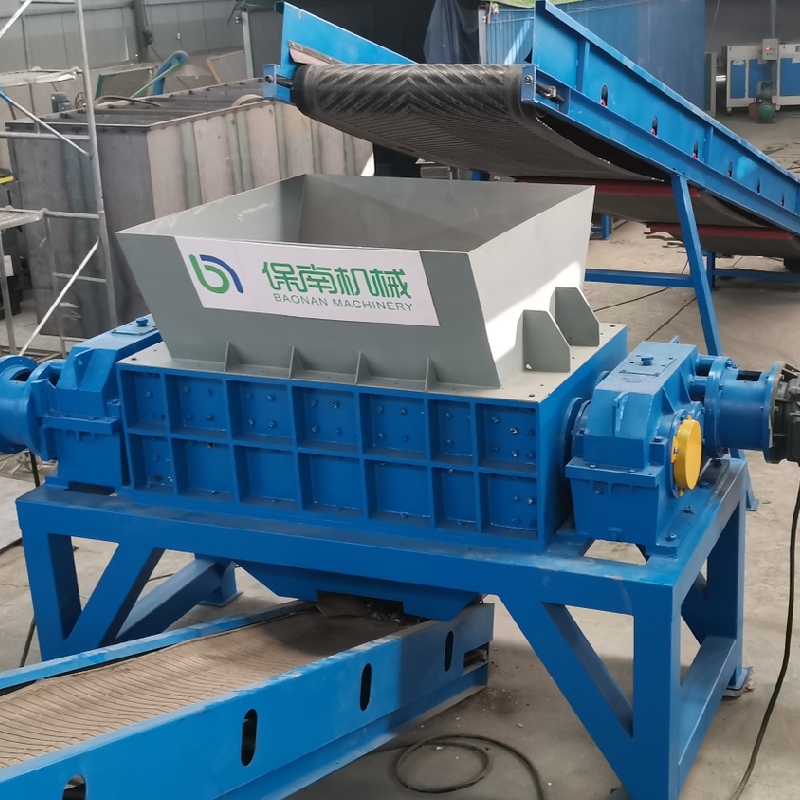
10 月 . 12, 2024 22:45 Back to list
The Importance of Waste Sorting Machines in Modern Waste Management
In today's rapidly changing world, the issue of waste management has become increasingly critical. With the rise in population and urbanization, the volume of waste generated is expanding at an alarming rate. To address this challenge, waste sorting machines have emerged as a vital tool in modern waste management systems. These machines not only enhance the efficiency of recycling processes but also contribute significantly to environmental sustainability.
Waste sorting machines are designed to automatically separate different types of materials from mixed waste, significantly reducing the need for manual sorting. This technology primarily employs various methods such as conveyor belts, shredders, air classification, and magnetic separation to identify and segregate materials like plastics, metals, paper, and organic waste. By automating the sorting process, these machines increase the speed and accuracy of waste management operations, ensuring that recyclable materials are efficiently captured and processed.
One of the most significant benefits of waste sorting machines is their ability to improve recycling rates. According to recent statistics, a well-implemented waste sorting system can increase recycling rates by up to 30%. This is crucial as recycling plays a vital role in conserving natural resources and reducing environmental pollution. For instance, recycling one ton of paper can save over 17 trees, while recycling metals can significantly reduce the energy required to produce new materials. Therefore, the efficiency of waste sorting machines directly impacts the overall level of recycling achieved in a community.

Moreover, waste sorting machines help in diverting a substantial amount of waste from landfills
. Landfills are not only a source of methane emissions, a potent greenhouse gas, but they also pose a risk of soil and water contamination. By facilitating the separation of compostable materials and recyclables, waste sorting machines minimize the volume of waste that ends up in landfills, contributing to a more sustainable waste management system.Another advantage of these machines is their adaptability to various settings. Whether in urban centers, industrial facilities, or recycling plants, waste sorting machines can be tailored to meet specific waste management needs. With advancements in technology, businesses can opt for machines that integrate artificial intelligence and machine learning for more precise sorting capabilities. These machines can learn from incoming waste streams, continuously improving their sorting efficiency and effectiveness.
Furthermore, the implementation of waste sorting machines can lead to economic benefits. By increasing the amount of material diverted from landfills and boosting recycling efforts, communities can reduce their waste disposal costs. Additionally, the recycling industry creates jobs, from technology development to the processing of recyclable materials. As such, investing in waste sorting technology not only benefits the environment but also helps stimulate local economies.
In conclusion, waste sorting machines play a pivotal role in modern waste management by enhancing recycling rates, reducing landfill waste, and contributing to economic growth. As our world continues to grapple with the challenges of waste generation and environmental sustainability, the adoption of waste sorting technology will be critical. By integrating these innovative machines into waste management systems, we can take significant strides toward a cleaner and more sustainable future. Embracing waste sorting technology is not just an option; it is a necessity for responsible and effective waste management in the 21st century.
Latest news
Unveiling the Power of Eddy Current Separator
NewsSep.25,2024
Transform Your Home Recyclin:home metal shredder
NewsSep.25,2024
The Future of Waste Management with Recycling Line Picker
NewsSep.25,2024
The Benefits of a Metal Recycling Plant
NewsSep.25,2024
Revolutionize Material Separation with Onwang Technology
NewsSep.25,2024
Innovative Waste Management: Unveiling the MSW Sorting Plant
NewsSep.25,2024